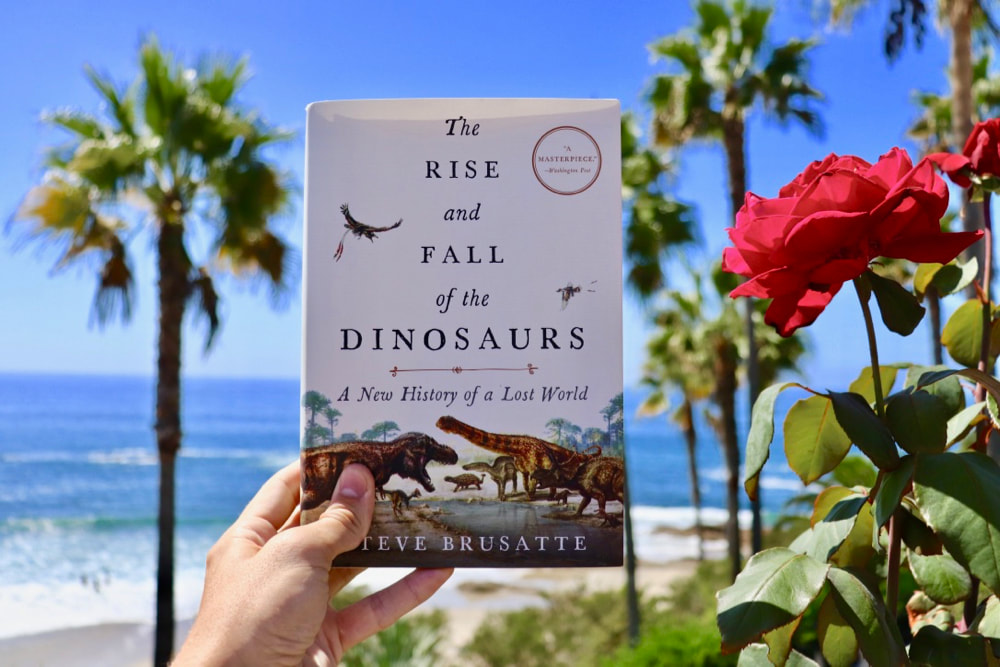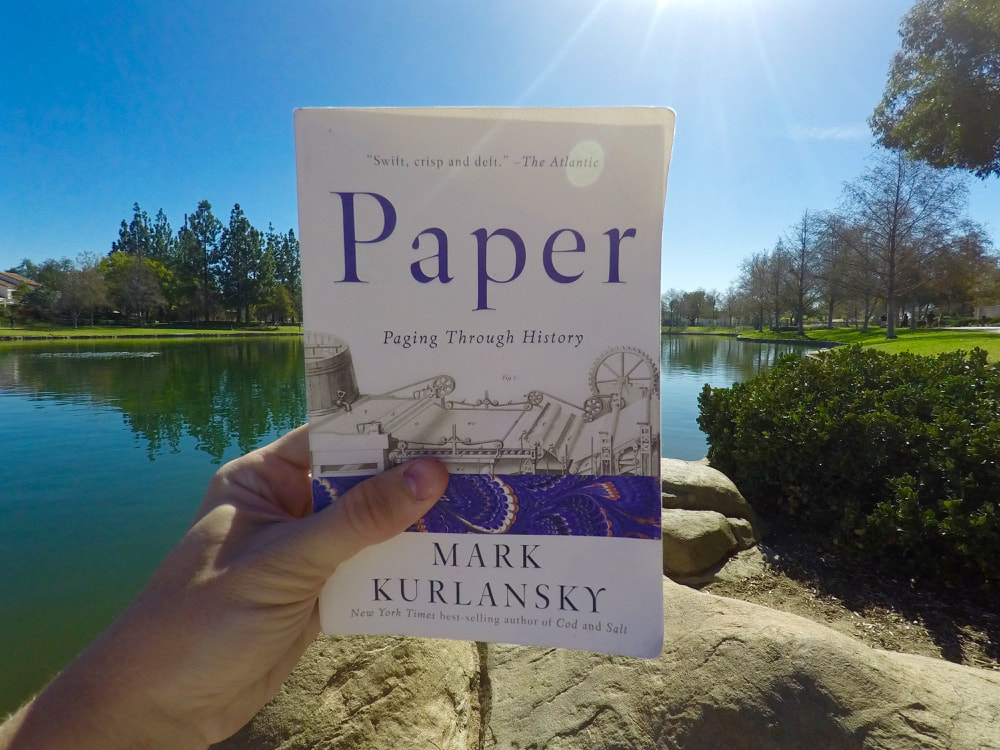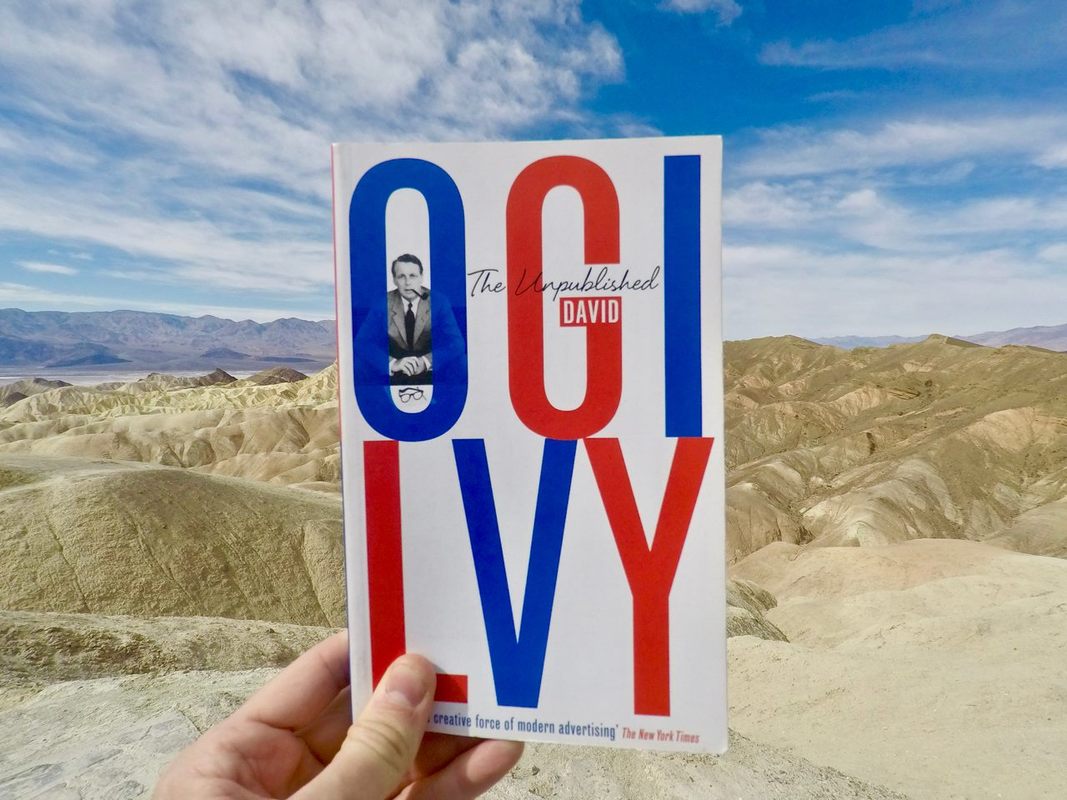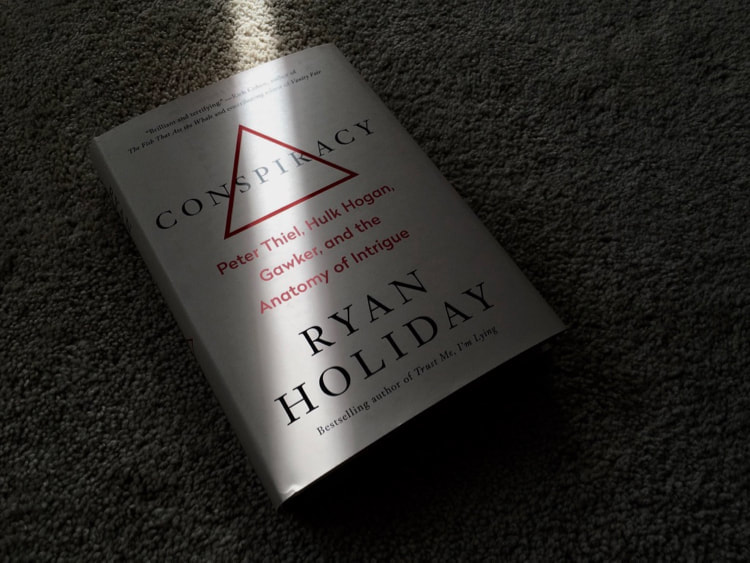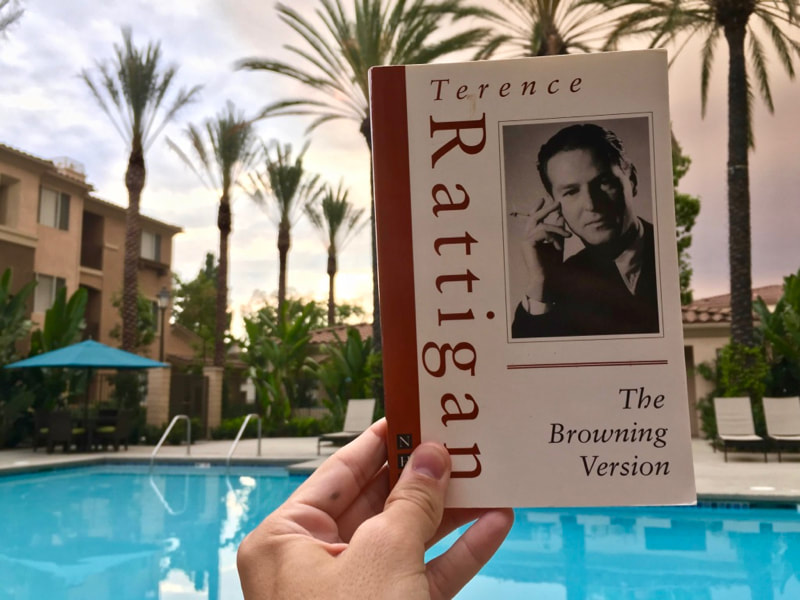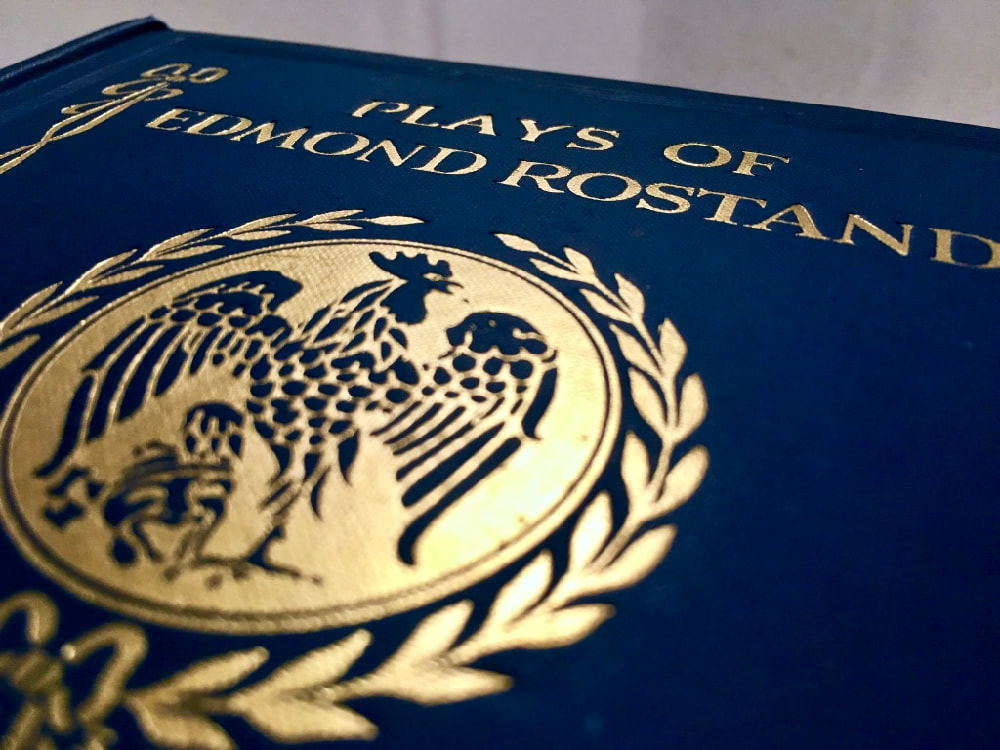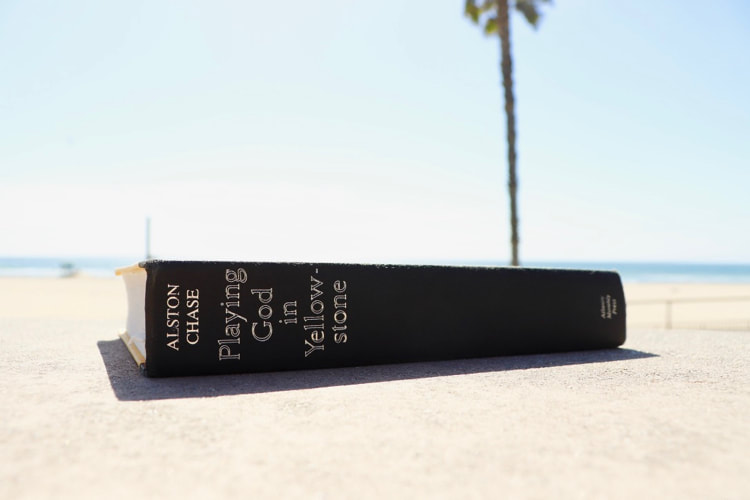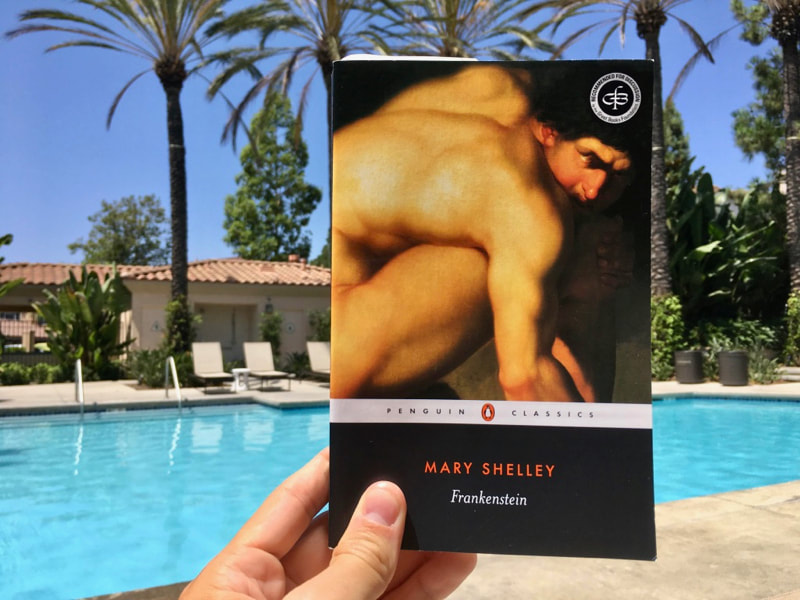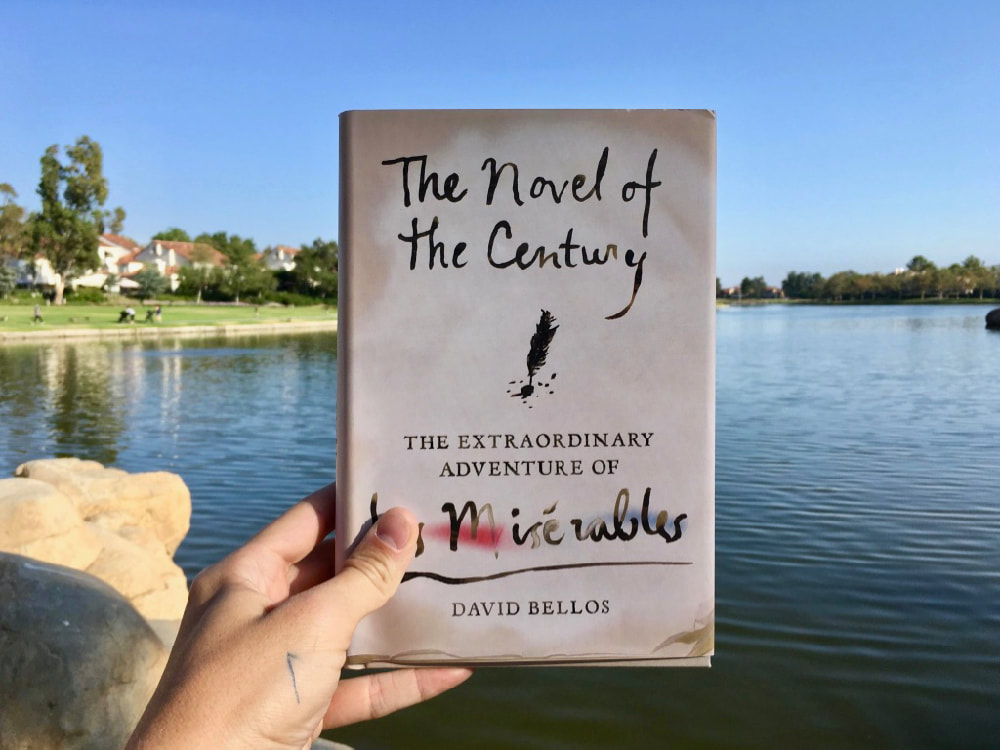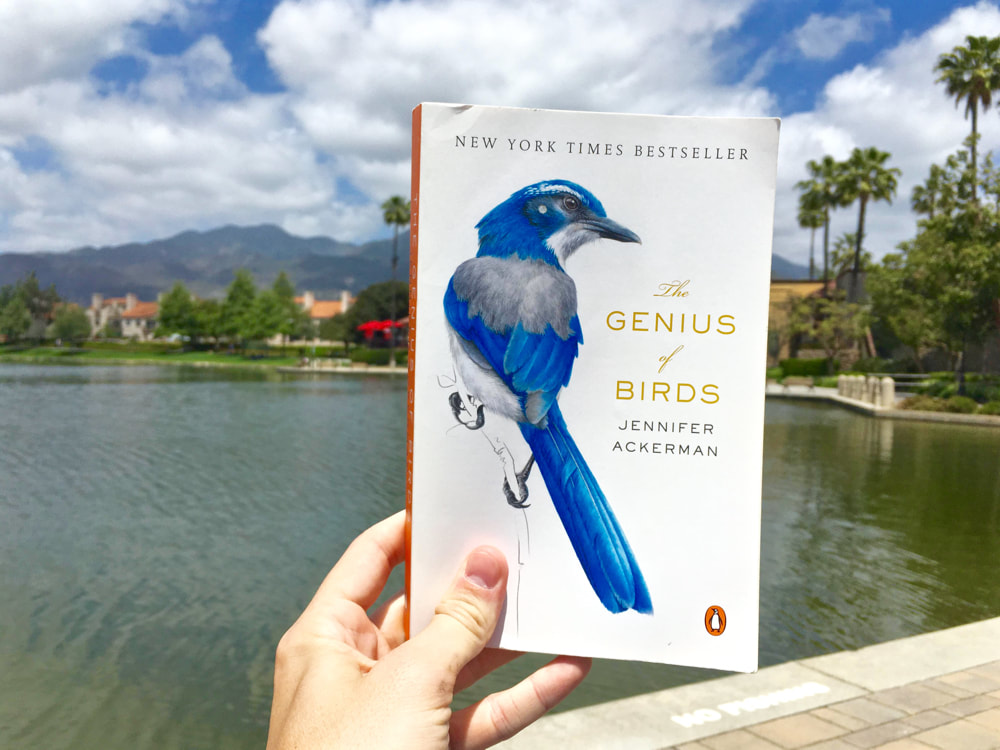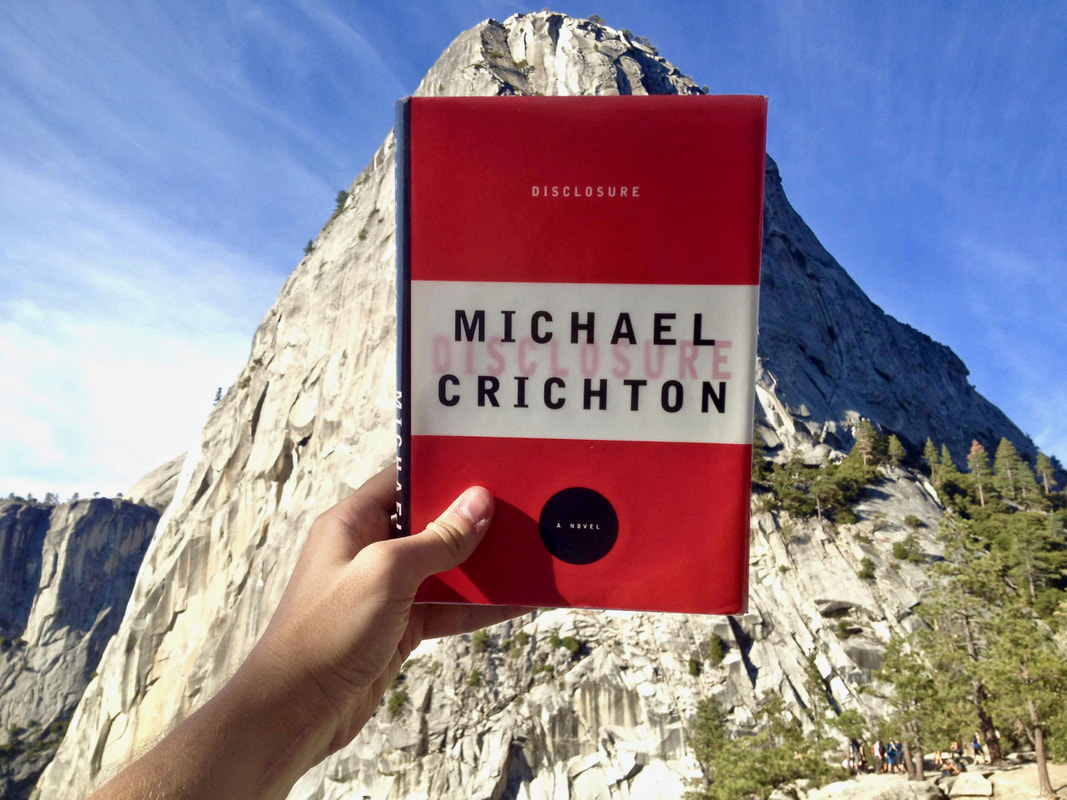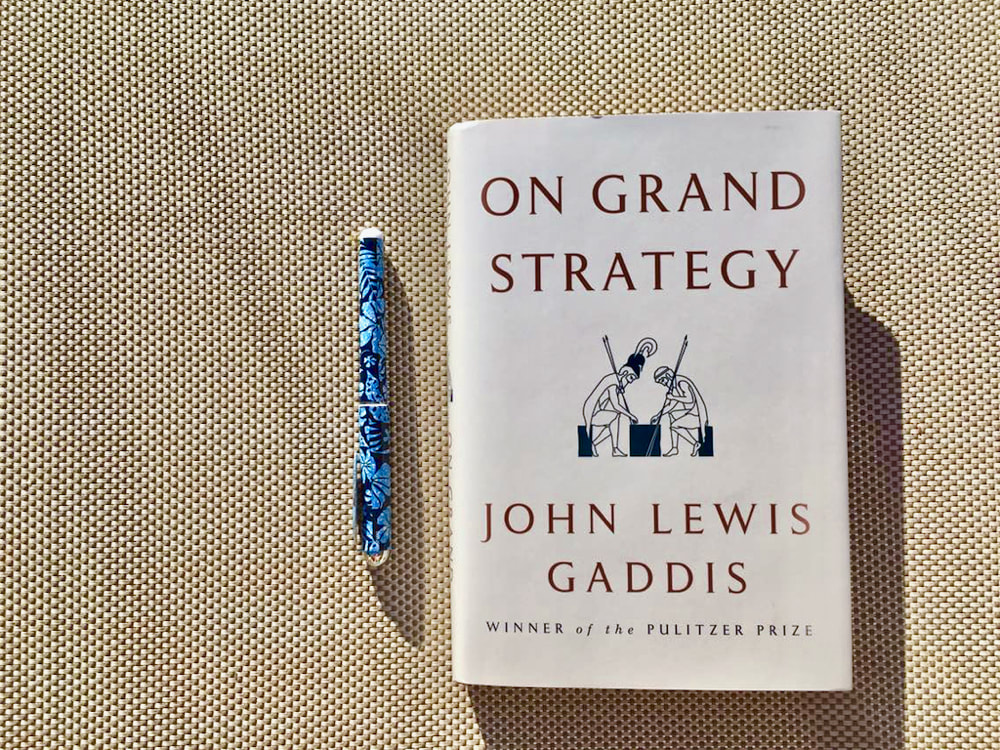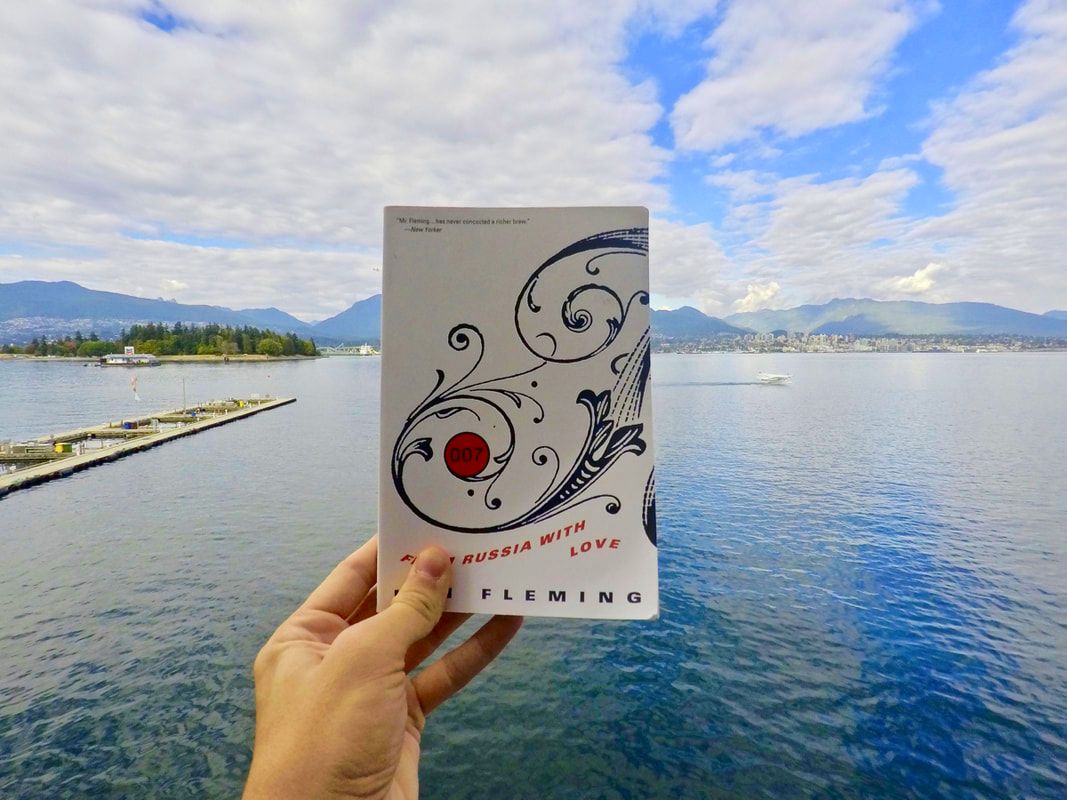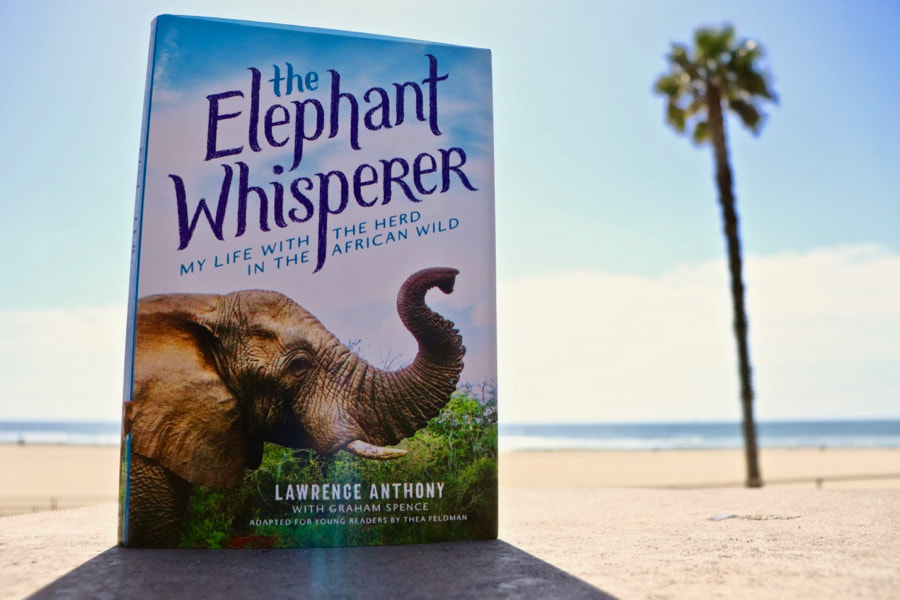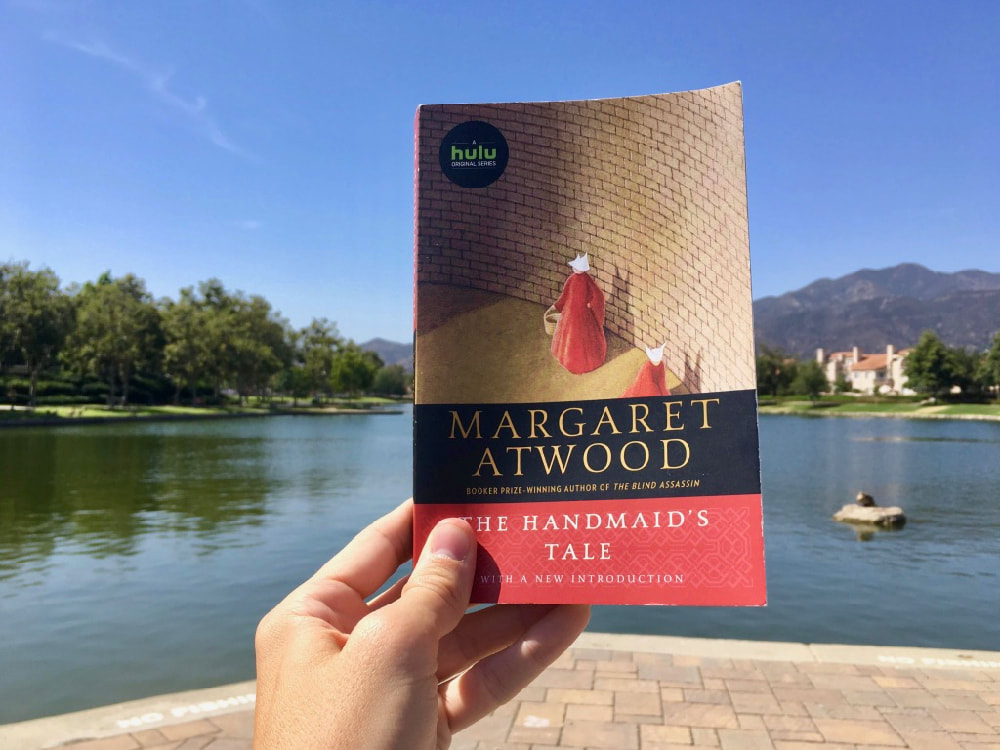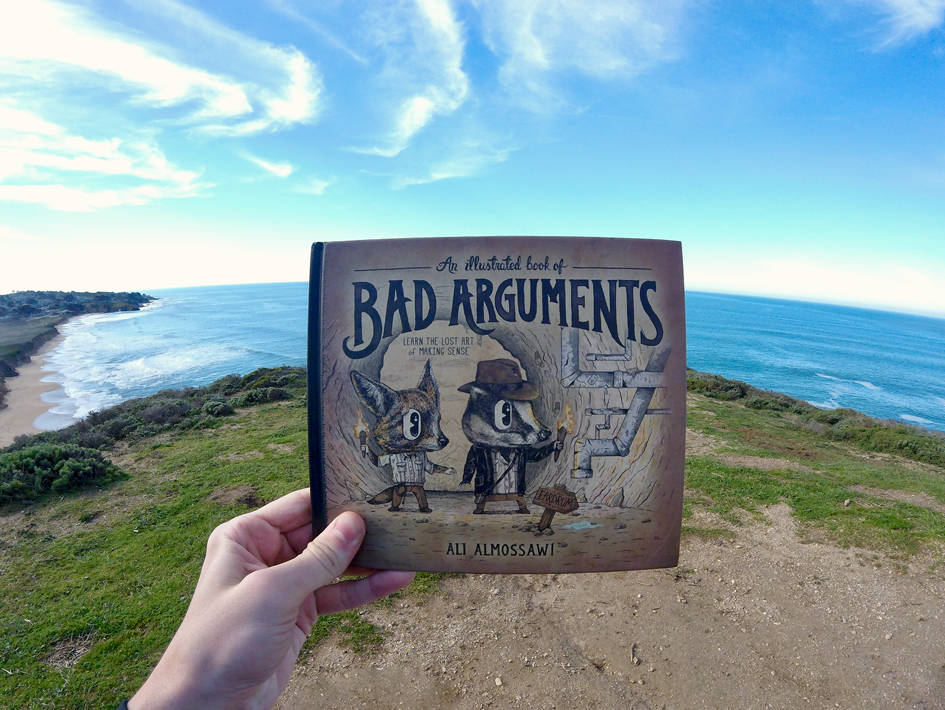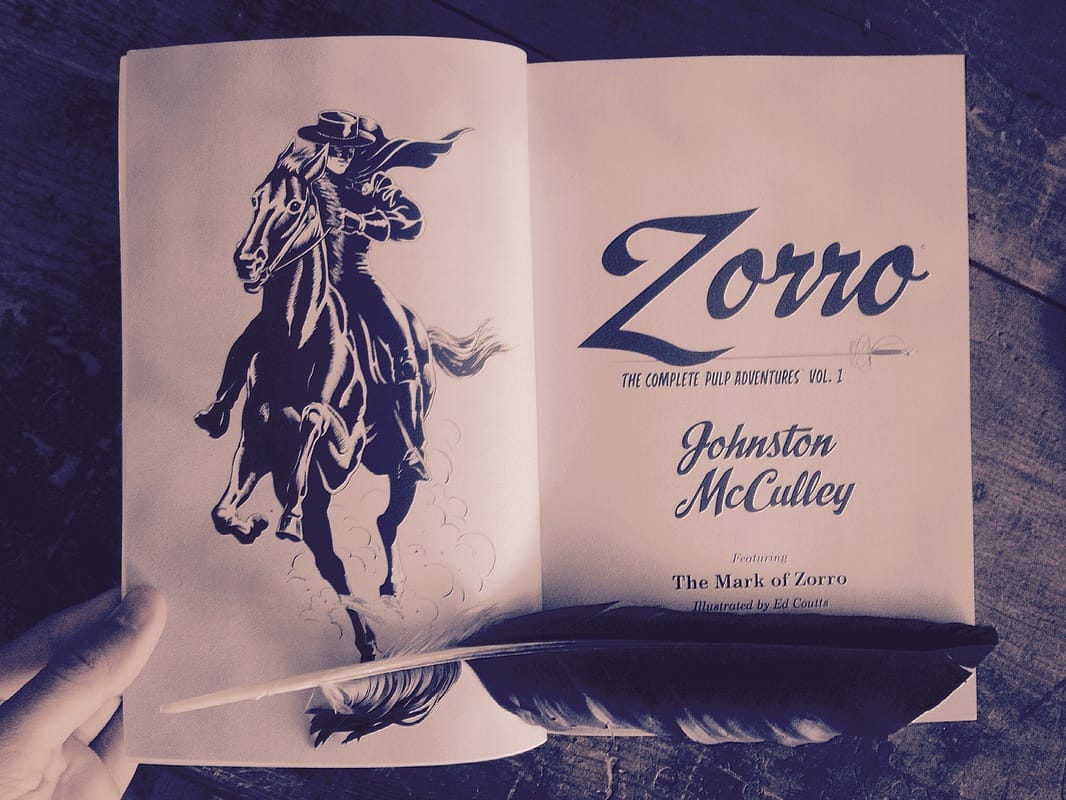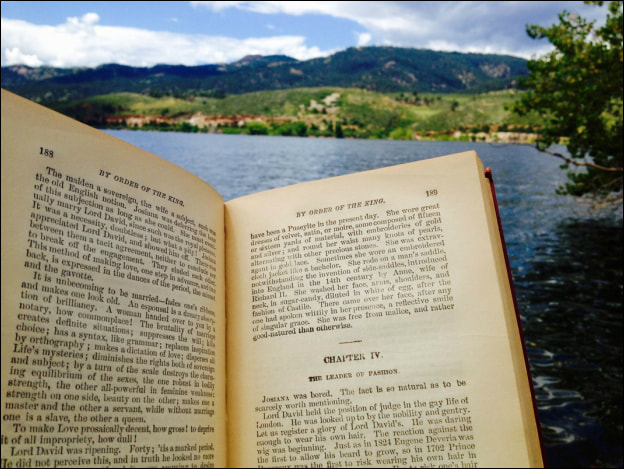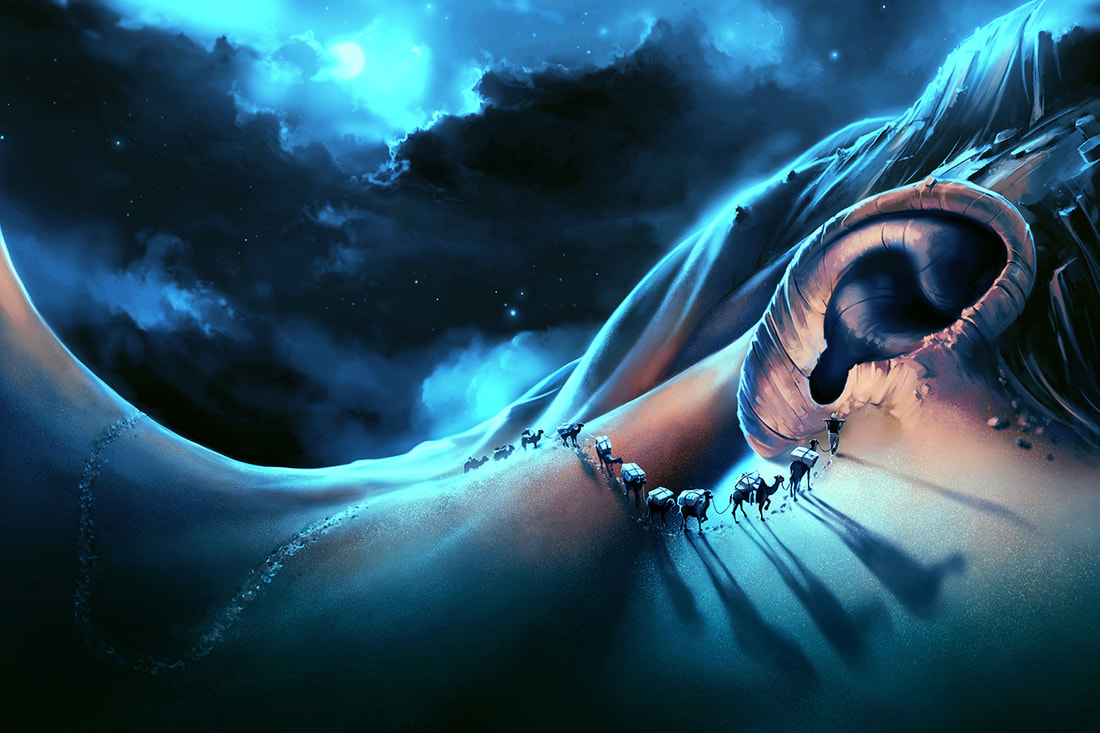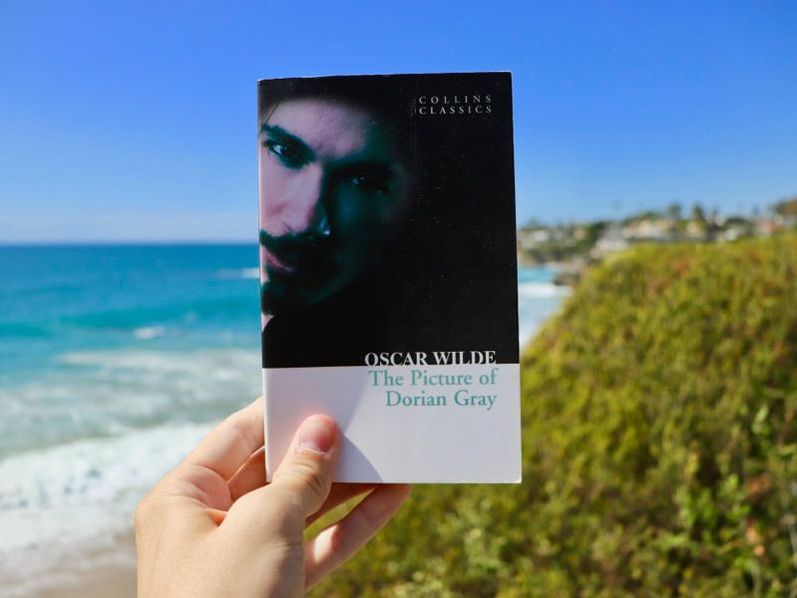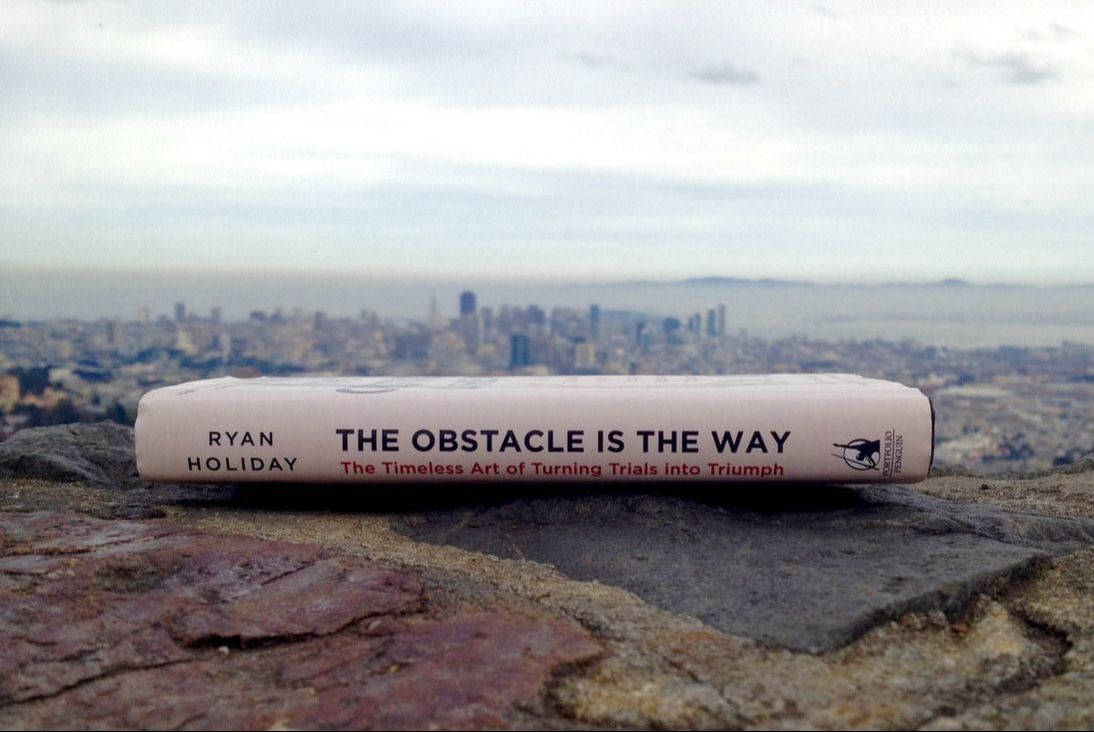An afternoon with some Tyrannosaurus Rex in Laguna Beach. October 2018.
| Dear Friends and Readers: 2018 marks my fifteenth year of reading a book a week and fifth blogging about it. Thank you so much for your support and being a part of the journey. With just 25 days (!) before 2019, per tradition I've gone ahead and rounded up my ten favorite reads this year. Whether you try all or one, I hope you get as much out of them as I have. And if you go your own way, be sure to let me know where you land. Stay nerdy my friends, Jon P.S. If you're looking for even more book recs, join the Reading List. Each month, I'll e-mail you 3-6 books that I absolutely couldn't put down—usually a mix of fiction and nonfiction. And if you're looking for more starting points, here are my favorites from 2017, 2016, 2015. P.P.S. There is only one 2019. What are you going to do about it? |
10. PAPER: PAGING THROUGH HISTORY
9,000 paper balloon bombs of Imperial Japan floating across the Pacific to Michigan, the tragic tale of Gutenberg's business failing, the impact of the world's first novel, Don Quixote, the Glatfelter(!) Mill in Pennsylvania producing 1,000+ tons of paper products each day—Mark Kurlansky's Paper was an spirited and curious journey across the pages that wrote yesterday and will write tomorrow.
Read my full recommendation for Paper here.
Read my full recommendation for Paper here.
9. THE UNPUBLISHED DAVID OGILVY
I (re)read at least one of his a year. Confessions is high-level; witty, eloquent, and mindset-shaping. On Advertising is the bottom level; tactical, creative and packed with direct, actionable instruction. Blood is philosophical, psychological; meditative. A holy trinity of the genius that is 'the father of modern advertising.' But The Unpublished David Ogilvy, republished in 2012, fills in more gaps of the man —the agency he built, the ads he created, and the culture of creativity he nurtured — for 58 years via a mosaic of impressionistic tiles in the form of letters, notes, memos, speeches, ads, interviews, and photographs.
A favorite quote: "Companies that have cultivated their individual identities by shaping values, making heroes, spelling out rites and rituals, and acknowledging the cultural network have an edge."
Read my full recommendation for The Unpublished David Ogilvy here.
A favorite quote: "Companies that have cultivated their individual identities by shaping values, making heroes, spelling out rites and rituals, and acknowledging the cultural network have an edge."
Read my full recommendation for The Unpublished David Ogilvy here.
| 8. CONSPIRACY: PETER THIEL, HULK HOGAN, GAWKER, AND THE ANATOMY OF INTRIGUE |
Surreal, disturbing, and potentially instructive, the story of Thiel's secret plans to totally and legally destroy one of the most powerful and ruthless media companies of the 21st century is brought into sunlight in a very dark time for the media landscape—a time that includes fake news, #gamergate and Trump, Breitbart and Salon, Antifa and Anonymous.
As newsworthy and contemporary as the events in Conspiracy are, Ryan Holiday's commentary places them into a dramatic, overarching narrative—a narrative largely crafted by Peter Thiel, his camouflaged legal team, and the (in)famous, anonymous, ex-Gawker employee known as Mr. A. This book is a trip. And especially for me because I actually worked with Gawker on behalf of Huckberry from 2015-2017, and saw firsthand the events unfold: the suite, the trial, the verdict, the bankruptcy, the auction and purchased by Univision, the shutting down of Gawker.com, the second-life of its various affiliate sites like Jezebel and Gizmodo, and the age-old-yet-seemingly-still-too-forgotten truth play out: actions have consequences.
Read my full recommendation for Conspiracy here.
As newsworthy and contemporary as the events in Conspiracy are, Ryan Holiday's commentary places them into a dramatic, overarching narrative—a narrative largely crafted by Peter Thiel, his camouflaged legal team, and the (in)famous, anonymous, ex-Gawker employee known as Mr. A. This book is a trip. And especially for me because I actually worked with Gawker on behalf of Huckberry from 2015-2017, and saw firsthand the events unfold: the suite, the trial, the verdict, the bankruptcy, the auction and purchased by Univision, the shutting down of Gawker.com, the second-life of its various affiliate sites like Jezebel and Gizmodo, and the age-old-yet-seemingly-still-too-forgotten truth play out: actions have consequences.
Read my full recommendation for Conspiracy here.
7. THE BROWNING VERSION
Terence Rattigan was a 20th Century playwright, whose best-known works include The Winslow Boy, After the Dance and The Deep Blue Sea. But The Browning Version is my favorite. Andrew Crocker-Harris, a retiring classics professor is unpopular with his students, disrespected by his employer and colleagues, and unloved by his wife. And yet, there is so much good in him, just under the surface, which in part he hides and others don't look. Rattigan's simple situation grows in complexity as he paints the characters around the professor and their particular estimations of him with a deliberate, breaking of expectations. The result is a partial, yet powerful grail of redemption.
Read my full recommendation for The Browning Version here.
Read my full recommendation for The Browning Version here.
6. ROMANTICS
In Romantics, Edmond Rostand reimagines the cliché star-crossed lovers tale via a hilarious three-act comedy. Percinet and Sylvette, teenage neighbors in love, take turns secretly reading Shakespeare's Romeo and Juliet to one another day after day. Their situation is tragically similar, with their two backyards separated by a tall brick wall, built out of mutual hatred shared by their fathers.
But in the opening act's twist, we the audience learn that the fathers are actually best friends, ones who've staged this charade and built the wall in an elaborate plot of reverse psychology. They want their son and daughter to marry, and think that the rebellious youth will fall for one another only if it's forbidden and the chances of being together are sufficiently bleak.
Read my full recommendation for Romantics here.
But in the opening act's twist, we the audience learn that the fathers are actually best friends, ones who've staged this charade and built the wall in an elaborate plot of reverse psychology. They want their son and daughter to marry, and think that the rebellious youth will fall for one another only if it's forbidden and the chances of being together are sufficiently bleak.
Read my full recommendation for Romantics here.
5. PLAYING GOD IN YELLOWSTONE
In 1972, Alston and Diana Chase left their tenured academic jobs, bought a remote cabin in Montana's Smith River county, and started a summer natural-history program for kids. It was from their log cabin they had made themselves, that Chase signed a book contract promising to explore the history of Yellowstone. Having trekked most of its trails for nearly thirty years, and as a member of the Board of Directors of the Yellowstone Library and Museum Association, Chase had an intimate understanding of the park—or so he thought.
Instead of a thriving example of American ingenuity, idealism, and scientific policy, Yellowstone, Chase argues is dying. The culprit? Tragically, our own National Park Service, whose century of mismanagement has destroyed the flora and fauna. Their law of the land, steeped in the idea of natural regulation, is largely to blame, based on virtually no scientific research, and concocted in the '50s and '60s from an ironic, lethal dosage of hubris. Chase's antidote: ice cold buckets of logic—applied to the park's 'natural regulation' policies and the underlying ideological stew of the environmentalist movement (from the 1880s-1980's). This is required reading for anyone who gives a damn about protecting and enhancing the natural world, which, naturally, we're a part of.
You can read the rest of my recommendation for Playing God in Yellowstone here.
Instead of a thriving example of American ingenuity, idealism, and scientific policy, Yellowstone, Chase argues is dying. The culprit? Tragically, our own National Park Service, whose century of mismanagement has destroyed the flora and fauna. Their law of the land, steeped in the idea of natural regulation, is largely to blame, based on virtually no scientific research, and concocted in the '50s and '60s from an ironic, lethal dosage of hubris. Chase's antidote: ice cold buckets of logic—applied to the park's 'natural regulation' policies and the underlying ideological stew of the environmentalist movement (from the 1880s-1980's). This is required reading for anyone who gives a damn about protecting and enhancing the natural world, which, naturally, we're a part of.
You can read the rest of my recommendation for Playing God in Yellowstone here.
4. FRANKENSTEIN
2018 marks the 200th anniversary of Frankenstein. I'm not sure what's more impressive — that to this day, it consistently ranks in the top 100 novels of all time across the world, or that Mary Shelley was only eighteen when she completed it.
Don't let the cliche halloween costumes fool you--Frankenstein is a cerebral and haunting exploration of the angels and devils inside both Dr. Frankenstein, and his Creation. I also loved the epistolary format of the text; the events are told through letters, diary entries, and oral testimonies.
You can my full recommendation for Frankenstein here.
Don't let the cliche halloween costumes fool you--Frankenstein is a cerebral and haunting exploration of the angels and devils inside both Dr. Frankenstein, and his Creation. I also loved the epistolary format of the text; the events are told through letters, diary entries, and oral testimonies.
You can my full recommendation for Frankenstein here.
3. THE NOVEL OF THE CENTURY
This is the best biography I've ever read—and it's about a book. The book with the biggest deal of its time. The book with the most translations and adaptations to this day. Les Misérables.
In "The Novel of the Century," David Bellos explores its ideation, creation, publication, and marketing with both broad and delicate Hugo-esque brushstrokes. I've never taken more notes on a book than this one. "I do not know whether [my book] will be read by all, but I wrote it for everyone," Hugo said in his time. "The sores of the human race, these running sores that cover the globe, don't stop at red or blue lines drawn on the map. Wherever men are ignorant and desperate, wherever women sell themselves for bread, wherever children suffer for want of instruction or a warm hearth, Les Misérables knocks on the door and says, 'Open up, I have come for you.'" And Bellos shows that it's come for the 21st century too.
You can read the rest of my recommendation for The Novel of the Century here.
In "The Novel of the Century," David Bellos explores its ideation, creation, publication, and marketing with both broad and delicate Hugo-esque brushstrokes. I've never taken more notes on a book than this one. "I do not know whether [my book] will be read by all, but I wrote it for everyone," Hugo said in his time. "The sores of the human race, these running sores that cover the globe, don't stop at red or blue lines drawn on the map. Wherever men are ignorant and desperate, wherever women sell themselves for bread, wherever children suffer for want of instruction or a warm hearth, Les Misérables knocks on the door and says, 'Open up, I have come for you.'" And Bellos shows that it's come for the 21st century too.
You can read the rest of my recommendation for The Novel of the Century here.
2. THE GENIUS OF BIRDS
There are roughly 400 billion birds on earth. That's 80 per human. And yet, for as plentiful, resourceful, and resilient as the feathered species are, author and "bird nerd" Jennifer Ackerman contends we still know very little about them—and worse, largely dismiss them. "Our language reflects our disrespect. Something worthless or unappealing is 'for the birds.' An ineffectual politician is a 'lame duck.' To 'lay an egg' is to flub a performance. To be 'henpecked' is to be harassed with persistent nagging. 'Eating crow' is eating humble pie. The expression 'bird brain,' for a stupid, foolish, or scatterbrained person, entered the English language in the early 1920's because people thought of birds as mere flying, pecking automatons, with brains so small they had no capacity for thought at all. That view is a gone goose."
Birds make tools. They count. They imitate behaviors of other birds and even humans. They invent new solutions to old problems. They remember where they put things—especially the Western scrub jay which can recall up to 33,000 winter food caches. They can anticipate and guard against storms. They exploit opportunities. They make nests according to certain esthetic standards, even in the absence of females and the chance of mating...These incredible feats and others suggest profound mental capacities and abilities, ones comparable to those found in some primates.
Weighing it at a featherlight 250 pages, The Genius of Birds is rich with eight self-contained chapters, that explore a trove of anecdotal observations, neurological studies, fascinating experiments, and lots of open questions.
I finished this book sitting on a bench overlooking Lake Rancho Santa Margarita at sunset. A Canadian goose honks from the distant bank at a man, until joined by what might be its mate. And across the water, closer to me, a chorus of bold sparrows sing atop a pair of swaying palm trees and the adobe roof slats of the local Starbucks. I will never look at or listen to a bird the same way again.
You can read the rest of my recommendation for The Genius of Birds here.
Birds make tools. They count. They imitate behaviors of other birds and even humans. They invent new solutions to old problems. They remember where they put things—especially the Western scrub jay which can recall up to 33,000 winter food caches. They can anticipate and guard against storms. They exploit opportunities. They make nests according to certain esthetic standards, even in the absence of females and the chance of mating...These incredible feats and others suggest profound mental capacities and abilities, ones comparable to those found in some primates.
Weighing it at a featherlight 250 pages, The Genius of Birds is rich with eight self-contained chapters, that explore a trove of anecdotal observations, neurological studies, fascinating experiments, and lots of open questions.
I finished this book sitting on a bench overlooking Lake Rancho Santa Margarita at sunset. A Canadian goose honks from the distant bank at a man, until joined by what might be its mate. And across the water, closer to me, a chorus of bold sparrows sing atop a pair of swaying palm trees and the adobe roof slats of the local Starbucks. I will never look at or listen to a bird the same way again.
You can read the rest of my recommendation for The Genius of Birds here.
1. TWELVE RULES FOR LIFE: AN ANTIDOTE TO CHAOS
The internet's pre-eminent father figure (and SJW nemesis), Dr. Jordan B Peterson, has written an unconventionally inspiring and instructive manual for dealing with life, career, romance, family, and personal meaning. I've found a tremendous amount of practical insights from his analysis of biblical and archetypal stories, his mining of history to courageously look at mankind in its worst moments, and his synthesizing of biological and psychological research to understand how societies fail and function. Because of Peterson, I'm not as lazy, messy, bitter, resentful, angry, and pitiful. I see the implications for such chaos a bit more clearly. I hope others begin to help themselves too.
RUNNERS UP ...
1. DISCLOSURE
Disclosure shook the shelves in '94 with controversy, and though the novel turned twenty-four this January, the issues that it explores—sexual harassment, corporate politics, and gender stereotypes—are as relevant as ever.
Tom Sanders, an up-and-coming executive at DigiCom in Seattle, is in store for one hell of a Monday. Expecting with good reason that he's walking into a well-deserved promotion, he's ambushed. After a private, closed-door, after-five-p.m. meeting with his new boss, Meredith Johnson, Tom suddenly finds himself accused of sexually harassing her. And the world is aligning against him. Meredith is young, attractive, and a trusted member of Digicom's upper echelons. Plus, she is Tom's ex-lover from ten years back. And she got the job he wanted. The writing's on the wall as far as everyone else is concerned: Tom's guilty. And now his family and career are all but over. Tom will have to scramble if he's to have a hope at clearing his name and righting a terrible injustice.
You can read the rest of my recommendation for Disclosure here.
Tom Sanders, an up-and-coming executive at DigiCom in Seattle, is in store for one hell of a Monday. Expecting with good reason that he's walking into a well-deserved promotion, he's ambushed. After a private, closed-door, after-five-p.m. meeting with his new boss, Meredith Johnson, Tom suddenly finds himself accused of sexually harassing her. And the world is aligning against him. Meredith is young, attractive, and a trusted member of Digicom's upper echelons. Plus, she is Tom's ex-lover from ten years back. And she got the job he wanted. The writing's on the wall as far as everyone else is concerned: Tom's guilty. And now his family and career are all but over. Tom will have to scramble if he's to have a hope at clearing his name and righting a terrible injustice.
You can read the rest of my recommendation for Disclosure here.
2. ON GRAND STRATEGY
Yale Professor and Cold War expert John Lewis Gaddis' On Grand Strategy is a masterclass in leadership. Organized into ten self-contained, tightly-bound chapters, the book serves as a primer on grand strategy with historical examples from ancient China, Greece, Persia, and Rome, up through medieval Europe, Elizabethan England, Napoleon's Europe, Lincoln's Union, and leaders of the 20th Century. With spectacular flourishes, Gaddis weaves together the war meditations of Clausewitz and Sun Tzu with Machiavelli's discourses on statecraft, FDR's geo-political maneuvering, and Tolstoy's employment of interconnected narratives, mapping the mindset needed to achieve great ends.
You can read the rest of my recommendation for On Grand Strategy here.
You can read the rest of my recommendation for On Grand Strategy here.
3. FROM RUSSIA WITH LOVE
This is my favorite James Bond novel by far.
Having now read nine of the fourteen (Russia itself is the fifth), I loved the powerful rubber band of tension set off from Chapter 1 and stretched further and further before snapping in spectacular fashion in the final few aboard a lethal Orient Express train ride. That tension, this time better than any other novel, is in large part due to Fleming's ability to establish worthy adversaries. Breaking from the other novels' traditional form, we get 96 pages—Part I in its entirety—meeting Bond's enemies:
Bond's entrance comes—finally—at the curtain-lift of Part 2: The Execution, with the line, "The blubbery arms of the soft life had Bond around the neck and they were slowly strangling him. He
was a man of war and when, for a long period, there was no war, his spirit went into decline."
You can read the rest of my recommendation for From Russia With Love here.
Having now read nine of the fourteen (Russia itself is the fifth), I loved the powerful rubber band of tension set off from Chapter 1 and stretched further and further before snapping in spectacular fashion in the final few aboard a lethal Orient Express train ride. That tension, this time better than any other novel, is in large part due to Fleming's ability to establish worthy adversaries. Breaking from the other novels' traditional form, we get 96 pages—Part I in its entirety—meeting Bond's enemies:
- Rosa Klebb, a 5'4" toad-woman strategizing every detail of Bond's impending murder
- Red Grant, Irish turncoat and SMERSH's absolutely psychotic assassin
- & Tatiana Romanova, a double agent ordered to 'defect' and seduce Bond
Bond's entrance comes—finally—at the curtain-lift of Part 2: The Execution, with the line, "The blubbery arms of the soft life had Bond around the neck and they were slowly strangling him. He
was a man of war and when, for a long period, there was no war, his spirit went into decline."
You can read the rest of my recommendation for From Russia With Love here.
4. THE ELEPHANT WHISPERER
In South Africa, rogue elephants are shot. So when Lawrence Anthony, "the Indiana Jones of conservation," was asked to take in a whole herd in 1999—a herd who had tried to escape from their owners many times and seen their leader killed by humans, he knew his answer was the animals' life or death sentence.
Fighting off desperate poachers, building electric fences from scratch, protecting other creatures on the reserve, treating various sicknesses—Anthony's obstacles were endless. And perhaps most difficult of all was achieving what few humans ever have with rogue elephants: heal their trust in humans.
You can read the rest of my recommendation for The Elephant Whisperer here.
Fighting off desperate poachers, building electric fences from scratch, protecting other creatures on the reserve, treating various sicknesses—Anthony's obstacles were endless. And perhaps most difficult of all was achieving what few humans ever have with rogue elephants: heal their trust in humans.
You can read the rest of my recommendation for The Elephant Whisperer here.
5. THE HANDMAID'S TALE
This dystopia explores sex, politics, and religion. Set in the near future in New England, the story follows Offred and several other Handmaids in the Republic of Gilead. They're not humans. They're property. Women are forbidden to read, write, skip church services, flirt or touch a man other than their Commander, or possess contraband such as lingerie and music with love lyrics. They cannot leave the house without permission. Homosexuals, atheists, and other impure individuals are hunted by soldiers, then hanged from Gilead's high stone wall as reminders to citizens that they're all 'Under His Eye.' A Handmaid's only hope is to get pregnant from their Commander, and as fast as possible, else they're shipped off to the colonies, an anarchical cesspool beyond the frontiers of 'civilization.'
You can read the rest of my recommendation for The Handmaid's Tale here.
You can read the rest of my recommendation for The Handmaid's Tale here.
YOU MAY ALSO LIKE

